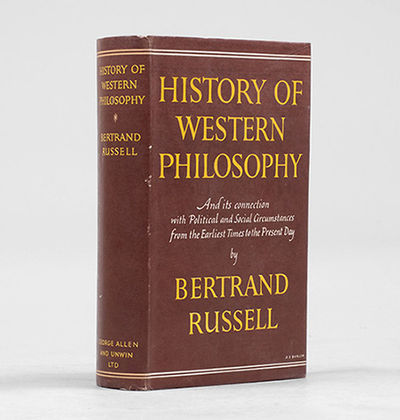

The Stanford Encyclopedia of Philosophy notes that 'His History is still widely read and did much to initiate twentieth-century research on a wide range of historical figures from the presocratics to Leibniz', and still provides one of the most popular systematic introductions to western thought. Russell's History of Western Philosophy stands independently as a significant work in the discipline. Slight darkening to the edges of the boards. Jacket edge-worn with loss at the head of the spine and minor marks (and printed on re-used war-time paper with map on verso). Publisher's full sailcloth in printed dust wrapper. While criticised by some as being too general, many found the book an accessible and easily readable introduction to Philosophy and it became a best seller which has not been out of print since.Ĭloth. Russell won the Nobel prize for Literature in 1950, with the Nobel committee listing this title among the works that influenced their decision. A nice copy of Russell's hugely popular history, broadly covering covering philosophers and philosophical thought from the Pre-Socratics up to John Dewey and William James, and finishing with Logical Analysis. Rear panel is marked and rubbed, but overall very good. In the original dustwrapper with some minor chipping to the top and bottom of the spine. Cloth a little marked but generally the book is in very good condition throughout. A clean copy bound in original publishers oatmeal cloth with brown and yellow stamped lettering panels to the spine.

Above all, an attempt had been made, wherever this seemed feasible, to translate philosophic ideas, normally expressed only in words, into diagrams, which convey the same information by way of geometrical metaphor. To support the account there is a collection of pictures of men, places and documents, which have been chosen as nearly as possible from sources belonging to the period to which they refer. Alternatively, the exposition may be combined with a certain measure of critical discourse, in order to show how philosophic discussion proceeds.This second course has been adopted here. Either the story is purely expository, showing what this man said and how that man was influenced.

An account of the history of philosophy may proceed in one of two ways. 'Wisdom of the West' is an entirely new work though of course, it would never have appeared had not my 'History of Western Philosophy preceded it. designer Edward Wright with ten Compositions by John Piper.


 0 kommentar(er)
0 kommentar(er)
